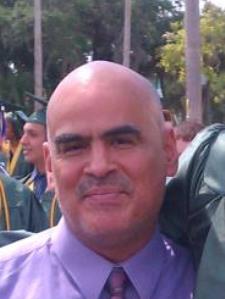Interestingly, although everything Aaron says is 100% true (and probably the more test-correct answer), I wanted to add that I see Tiresias as the most archetypal character of the ones listed.
The distinction between an archetype and a trope (as best listed on TVTropes.org) can become a bit fuzzy when applied to character typology. Tiresias certainly fits two major and recurring tropes, those called by that website the Blind Seer (a subtrope of Disability Superpower) and the Magical Queer.
I think it is important to remember these sorts of archetypes/tropes because a strong element of cultural and media literacy is the ability to see the sociopolitical dimensions of any given text. Though we know almost nothing about how blindness was constructed and worked with in ancient Greek culture (and, to tell you the truth, we don't know much about how transgenderism was, either, though we know far more than most people realize), texts like Antigone have functioned and function in various ways throughout history.
In many cultures, we can see the trope of the Disability Superpower -- the idea that losing some physical (and sometimes mental) capability somehow opens a path for superhuman or exceptional capability in some other quality. Thus, the idea that people in wheelchairs have increased upper body strength, or deaf people have enhanced sight, or people with autism are all geniuses in one specific subject (the bothersomely named "Idiot Savant" trope/archetype). In some ways and for some (but not nearly all) people with disabilities, these stereotypes have some basis in reality, even if they are inflated by those people who spread them. However, sometimes the "superpower" people with disabilities are assumed to have is more literally a superpower. The Blind Seer is a particularly common and visible example of such in classical European culture -- Justice/Iustitia is blind, Odin/Woden/Wotan plucked out his own eye in order to gain the magical power to see the future, the Graeae had only one eye, and Tiresias was struck blind at the same time he gained the power of prophecy. The underlying construction seems to be that, undistracted by the appearance or distractions of the world, the blind person can see more truly, can better see to the divine and magical heart of things.
Of course, Tiresias has a very particular origin story that explains both his blindness and his powers of prophecy. In this story, Zeus and Hera were having an argument about whether the male or the female had more enjoyment of sex. To settle their argument, they turned Tiresias into a woman so that he could have the experience of both. After some time passed, they changed him back and asked him, now that he had personal experience, for the answer to their question. He responded, "The woman," at which point Hera was pleased and gave him the power of prophecy and Zeus was angry and blinded him. Thus, although Tiresias differs from the homosexual-focused interpretation TVTropes.org gives the archetype of the Magical Queer, he plays very strongly into a transgender-focused interpretation. In this archetype, which I have seen everywhere from an episode of ER to ancient Hindu mythology (Ardhanariswara, "my lord who is half-woman", is known as the Destroyer of Illusions), transgender people have an insight that brushes aside illusion and social convention and therefore the ability to speak a very direct form of truth. Tiresias demonstrates this quality in both Oedipus Rex and Antigone, as he speaks almost aggressively to people with incredible political power.
By remembering these archetypes and seeing how they play out in ancient and classical literature, we can see the origins of the ableism and cissexism that so infuse our culture.




